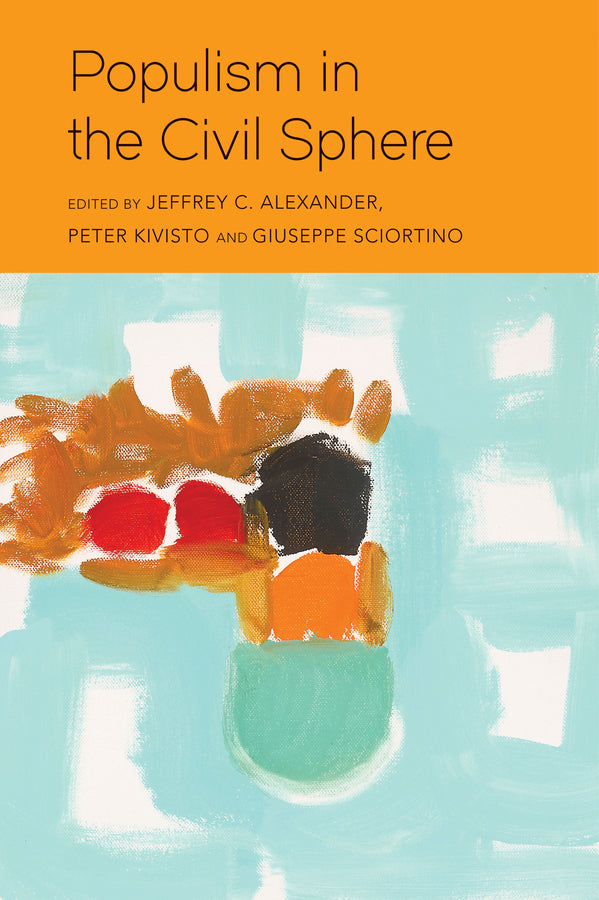Description
Discover the groundbreaking exploration of populism with "Populism in the Civil Sphere". This essential book delves into the complexities of populism, challenging conventional wisdom and offering a fresh perspective on its role in the modern democratic landscape. Published by John Wiley & Sons (UK) in 2020, this volume consists of 316 pages packed with insightful analysis and research. It argues that populism is not merely a deviation from democracy but rather an inherent aspect of civil dynamics, presenting both challenges and opportunities for democratic societies. By examining the polarizing effects of both left and right populism, this work sheds light on the anxiety surrounding civil solidarity and the perceptions of the civil sphere among different political ideologies. Ideal for students, scholars, and anyone interested in contemporary political discussions, this book invites readers to reconsider normative judgments surrounding populism. Add this vital text to your library of political science and sociology resources today. Note: Shipping for this item is free. Please allow up to 6 weeks for delivery. Once your order is placed, it cannot be cancelled. Condition: BRAND NEW. ISBN: 9781509544745.
Note: Shipping for this item is free. Please allow up to 6 weeks for delivery. Once your order is placed, it cannot be cancelled.
Condition: BRAND NEW
ISBN: 9781509544745
Year: 2020
Publisher: John Wiley & Sons (UK)
Pages: 316
Description:
Even as the specter of populism haunts contemporary societies, scholars have not been able to agree about what it is. Except for one thing: a deviation from democracy, the source, it seems, of the precarious position in which so many societies find themselves today. This volume aims to break the Gordian knot of śpopulismť by bringing a new social theory to bear and, in so doing so, suggesting that normative judgments about this misunderstood phenomenon need to be reconsidered as well. Populism is not a democratic deviation but a naturally occurring dimension of civil sphere dynamics, fatal to democracy only at the extremes.   Because populism is highly polarizing, it has the effect of inducing anxiety that civil solidarity is breaking apart. Left populists feel as if civil solidarity is an illusion, that democratic discourse is a fig leaf for private interests, and that the social and cultural differentiation that vouchsafes the independence of the civil sphere merely reflects the hegemony of narrow professional interests or those of a ruling class. Right populists share the same distrust, even repulsion, for the civil sphere. What seems civil to the center and left, like affirmative action or open immigration, they call out as particularistic; honored civil icons, such as Holocaust memorials, they trash. How can the sense of a vital civil center survive such censure from populism on the left and the right?   Populism in the Civil Sphere provides compelling answers to these fundamental questions. Its contributions are both sophisticated theoretical interventions and deeply researched empirical
Note: Shipping for this item is free. Please allow up to 6 weeks for delivery. Once your order is placed, it cannot be cancelled.
Condition: BRAND NEW
ISBN: 9781509544745
Year: 2020
Publisher: John Wiley & Sons (UK)
Pages: 316
Description:
Even as the specter of populism haunts contemporary societies, scholars have not been able to agree about what it is. Except for one thing: a deviation from democracy, the source, it seems, of the precarious position in which so many societies find themselves today. This volume aims to break the Gordian knot of śpopulismť by bringing a new social theory to bear and, in so doing so, suggesting that normative judgments about this misunderstood phenomenon need to be reconsidered as well. Populism is not a democratic deviation but a naturally occurring dimension of civil sphere dynamics, fatal to democracy only at the extremes.   Because populism is highly polarizing, it has the effect of inducing anxiety that civil solidarity is breaking apart. Left populists feel as if civil solidarity is an illusion, that democratic discourse is a fig leaf for private interests, and that the social and cultural differentiation that vouchsafes the independence of the civil sphere merely reflects the hegemony of narrow professional interests or those of a ruling class. Right populists share the same distrust, even repulsion, for the civil sphere. What seems civil to the center and left, like affirmative action or open immigration, they call out as particularistic; honored civil icons, such as Holocaust memorials, they trash. How can the sense of a vital civil center survive such censure from populism on the left and the right?   Populism in the Civil Sphere provides compelling answers to these fundamental questions. Its contributions are both sophisticated theoretical interventions and deeply researched empirical

